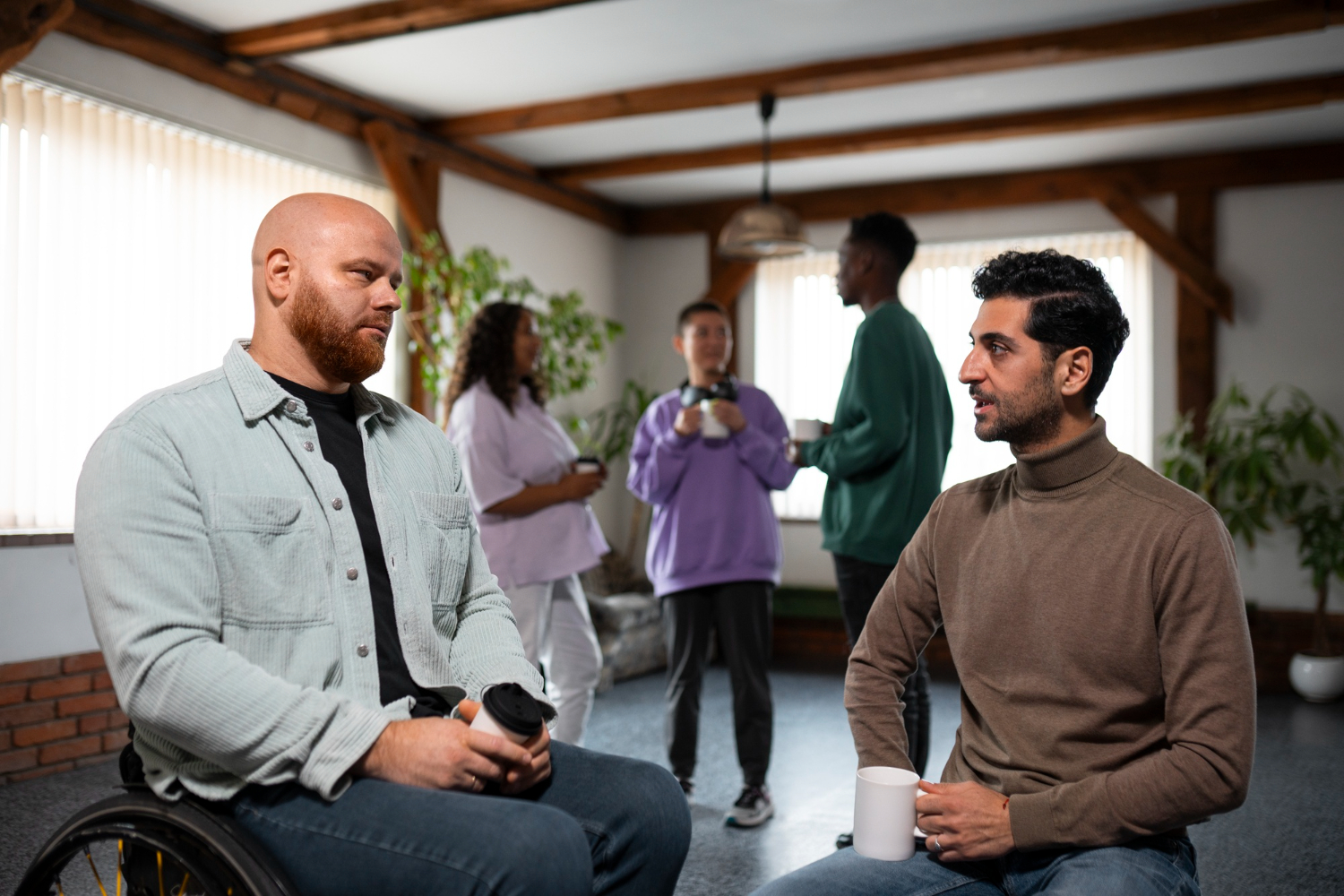
Starting your journey at an adult rehabilitation center through outpatient rehab can feel overwhelming at first. This guide explains what you can expect during your time in treatment. You'll learn about the daily structure, therapy options, and support systems available to help you recover. We'll cover the different types of treatment methods and how peer support plays a role in healing. Understanding these basics will help you feel more prepared and confident about taking this important step toward recovery.
Program Overview
Outpatient rehab lets you get treatment while living at home. You'll attend scheduled therapy sessions and classes during the day, then return home in the evening. This setup works well if you need to keep working, going to school, or taking care of family. A team of doctors, therapists, and counselors will work with you to create a treatment plan that fits your specific needs. The program includes one-on-one therapy, group sessions, and medication help if needed. Your team will check your progress regularly and adjust your treatment plan as you improve. This flexible approach helps you build recovery skills while maintaining your daily responsibilities.
Therapy Sessions
Therapy sessions are the heart of outpatient treatment. These meetings help you understand why addiction or mental health problems started and teach you better ways to cope. During sessions, you'll talk about your feelings, behaviors, and thoughts with a trained therapist. This safe space lets you work through difficult experiences and past trauma. Your therapist will teach you new skills to handle stress and challenging situations. Through regular therapy, you'll gain insights about yourself and build the strength needed to overcome obstacles in recovery.
Treatment Modalities
Outpatient rehab offers many different treatment methods to help you recover. Common approaches include cognitive-behavioral therapy (CBT), which helps change negative thought patterns, and dialectical behavior therapy (DBT), which teaches emotional control skills. Try yoga, meditation, or art therapy as part of your treatment. These different methods work together to help your mind, body, and emotions heal. Your treatment team will choose the best combination of therapies based on your specific needs and what works best for you.
Daily Schedule
Your daily schedule in outpatient rehab will include a mix of different activities. A typical day might include individual therapy, group therapy sessions, educational classes, and recreational activities. Some programs also include family therapy sessions. Each activity serves a specific purpose in your recovery. The schedule is carefully planned to help you learn new skills and coping methods. While it might feel busy at first, each part of your day is designed to support your progress and help you build a healthier lifestyle.
Peer Support
Connecting with other people in recovery is a valuable part of outpatient rehab. Peer support offers several benefits:
- Shared Experiences: Meeting others who face similar challenges helps you feel less alone in your struggles.
- Encouragement: Other group members can offer support and motivation when things get tough.
- Accountability: Being part of a group helps you stay committed to your recovery goals.
- Learning from Others: You can learn new strategies and coping skills from people who have faced similar problems.
Coping Strategies
Learning healthy coping strategies is key to successful recovery. Mindfulness is one useful technique - it helps you stay focused on the present moment instead of worrying about the past or future. Building a strong support network of family, friends, and other people in recovery gives you people to turn to when you need help. Regular exercise is another great coping tool that reduces stress and improves your mood. The key is finding coping strategies that work best for your personality and situation. Your treatment team will help you practice and develop these skills during your time in outpatient rehab.
Other Articles:



